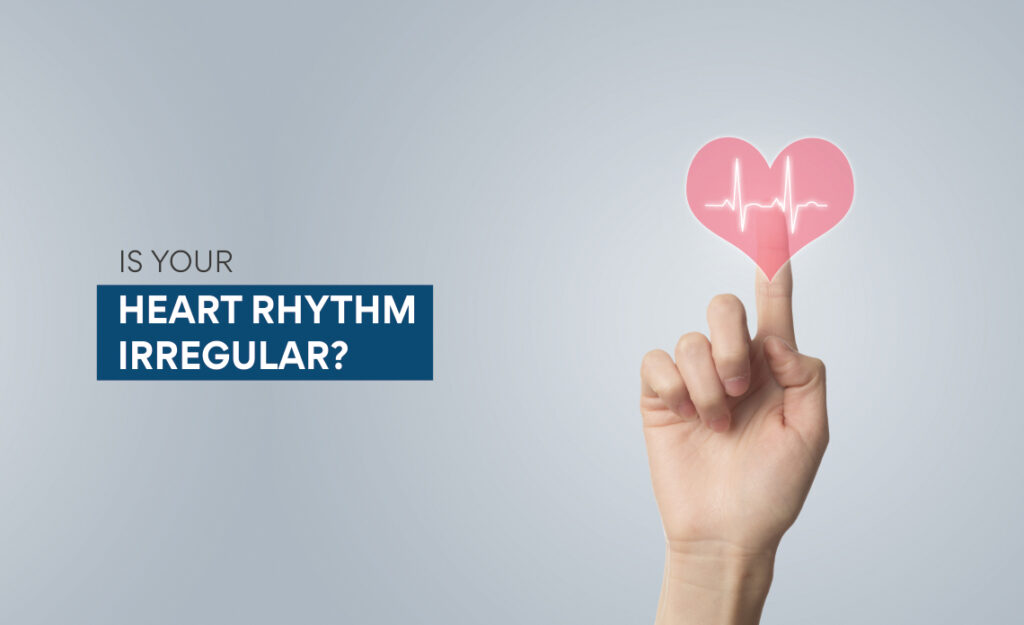Human heat is one of the most important organs that help sustain life by pumping blood throughout the body via the vessels of the circulatory system, supplying oxygen and nutrients to the tissues and removing carbon dioxide and other wastes. Under normal circumstances, the human heart beats at a steady rate of 60-100 beats per minute. The rate, however, can vary depending on a variety of factors such as physical activity, stress, temperature, or specific situations. When the heart rhythms or heartbeat rate become irregular, the condition is known as Arrhythmia. The symptoms vary on the type of arrhythmia one suffers from – too fast or too slow heartbeats. Symptoms of an arrhythmia include light headedness, dizziness, fatigue, palpitations, slow pulse, fainting spells, shortness of breath and chest pain.
Most cardiac arrhythmias occur suddenly without any prior indications. Arrhythmia can happen when the patient is already suffering from diabetes, CAD, heart defects, hypertension, anxiety, heart damage, thyroid problems, electrolyte imbalance, sleep apnea and already experienced heart surgery. People are more prone to develop arrhythmia who consume excessive alcohol and caffeine and do less physical activity.
Arrhythmias are classified into two types: ventricular and supraventricular.
- Ventricular arrhythmias occur in the heart’s lower chambers. This is also divided into Ventricular Tachycardia, Ventricular Fibrillation and Premature Ventricular Contractions.
- Supraventricular arrhythmias occur above the ventricles, usually in the upper chambers of the heart known as the atria.
The causes of irregular heart rhythm in the atria are because of–
- Atrial fibrillation
- Atrial flutter
- Supraventricular tachycardia
- Wolff-Parkinson-White syndrome
The causes of irregular heart rhythm in the ventricles are because of –
- Ventricular tachycardia
- Ventricular fibrillation
- Long QT syndrome
Cardiac Arrhythmia Treatment:
Cardiac arrhythmia needs a group of specialists and proper infrastructure. Facilities available to the affected patients are Leadless Pacemaker Implant, Alternate Site Right Ventricular Pacing, His Bundle Pacing, and Left Bundle Pacing.. We also have facilities for the following investigative tests –
- CG, Echocardiography
- Holter Monitoring, ELR (Extended Loop Record) and Implantable Loop Recorder
- Cardiac Catheterization and Coronary Angiography
- Cardiac MRI
You can also try to keep healthy your heart by following a few steps –
- Avoid excessive caffeine
- Limit alcohol consumption or quit
- Take heart-rate control medications regularly
Did you know that you can have a rough estimate of your heartbeat at home too! Simply follow these steps –
- Place your right hand over your heart and feel your heartbeat beneath your fingertips.
- Count the number of beats for 15 seconds with a watch or timer.
- Count all heartbeats, including those that aren’t as strong or come quickly after one another.
- Multiply the number of beats you’ve counted by four. For example, if you count 30 beats in 15 seconds, multiply 4 by 30 to get 120 beats per minute.
- Repeat this process three times right away, noting each heart rate to share with your doctor later.
The best way to decrease the risk of arrhythmia is to get regular check-ups and follow your doctor. Extra attention to your heart will help you to lead your life rhythmically.
